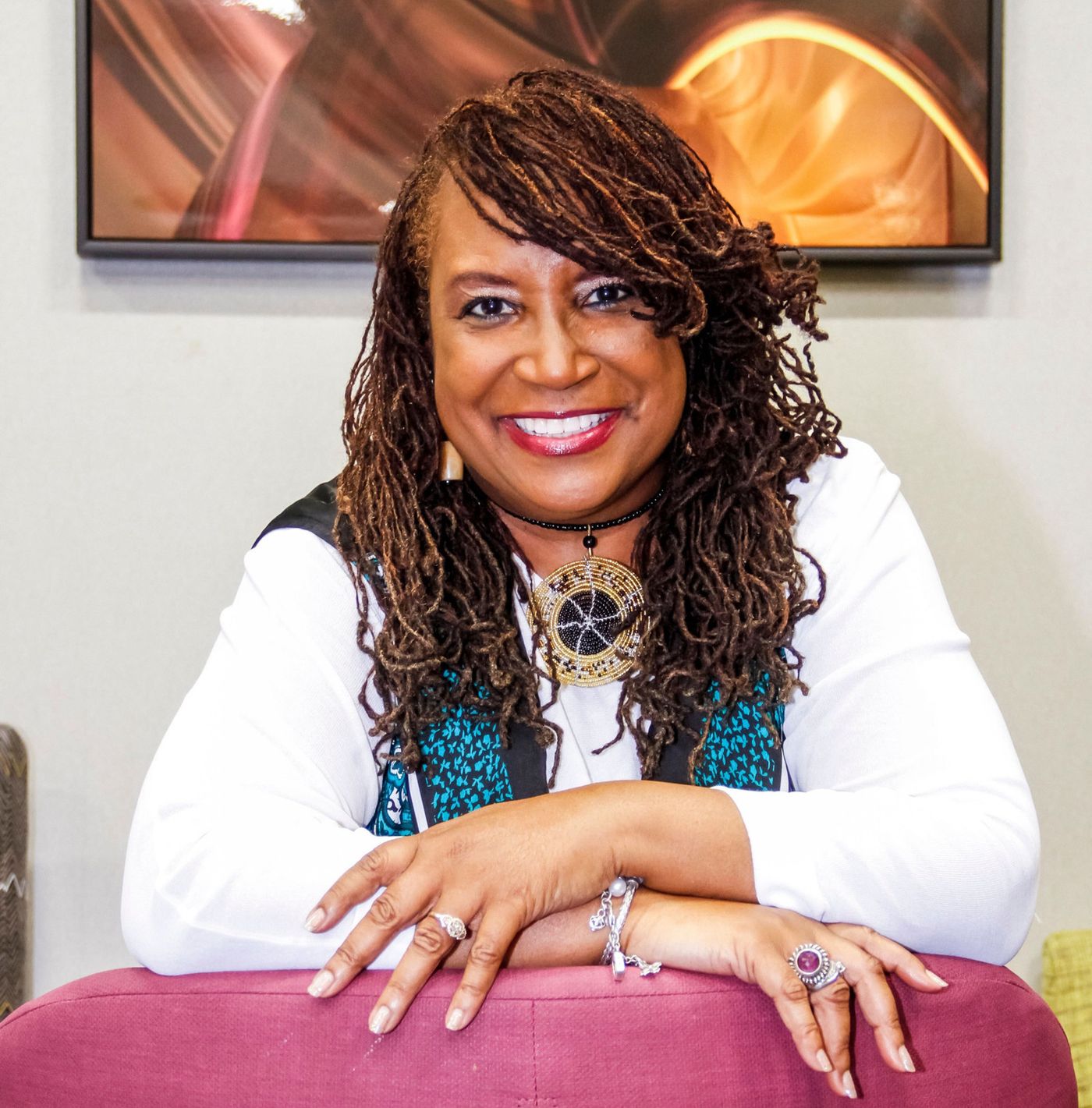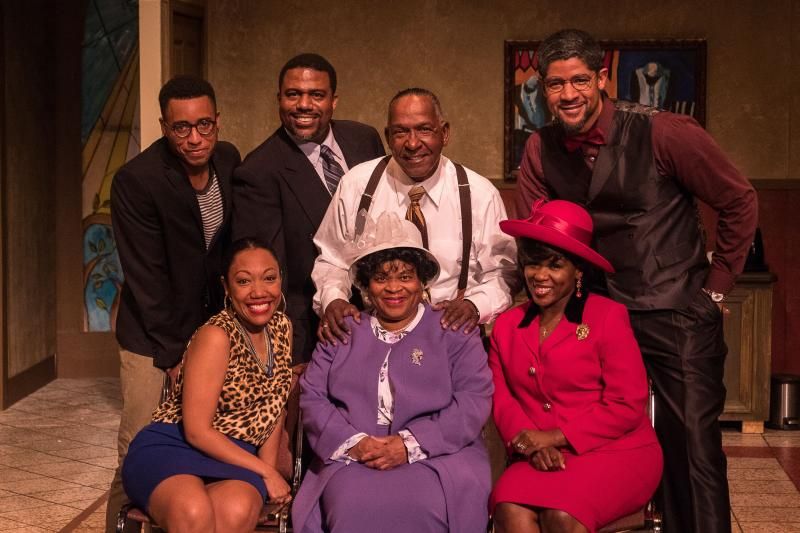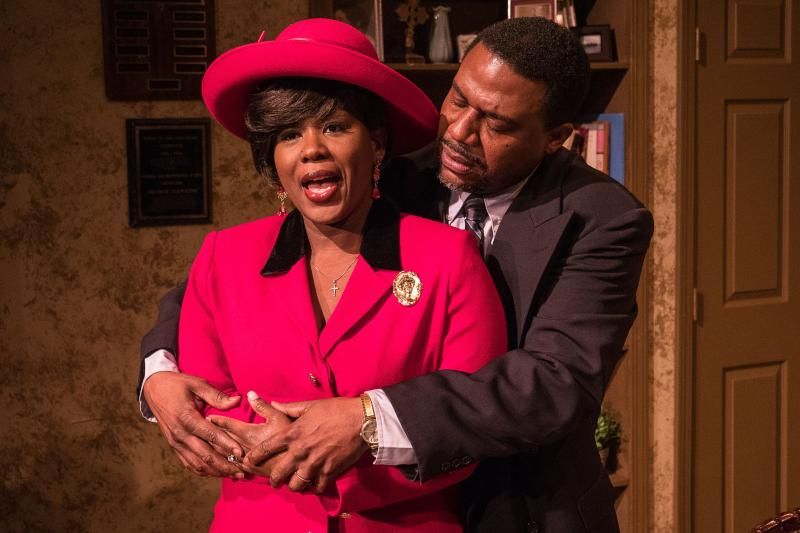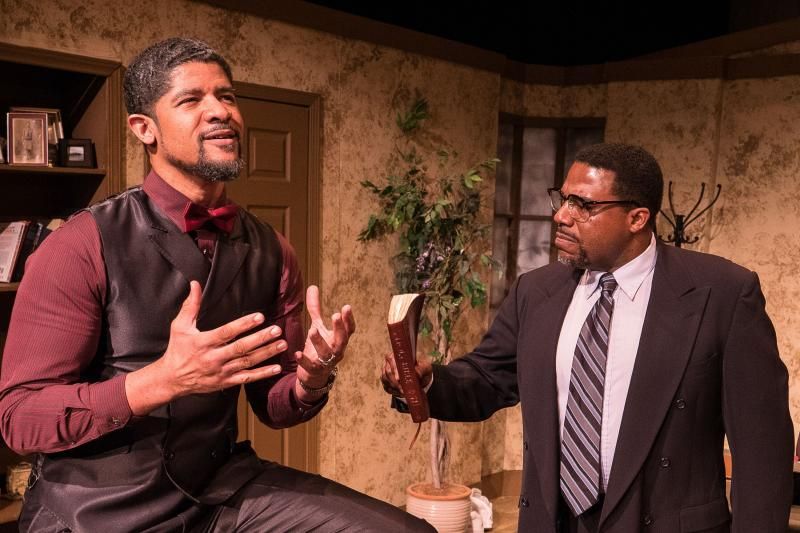Interview: The Ensemble Theatre's Eileen Morris Talks FREEDA PEOPLES

It is often said amongst theatre-goers and theatre-makers alike that "theatre is church". When attending a well-done production, theatre can be a cathartic, revealing, and truthful experience for the audience member. In the case of Joyce Sylvester's 'church comedy' FREEDA PEOPLES, running at The Ensemble Theatre through April 14th, the claim that "Theatre is church" is manifested quite literally.
Sylvester's comedy focuses on the relationship between a church's leaders and its congregation, analyzing the relationships between those of religious authority and the church patrons. Taking a closer look at the goings-on of this community reveals that no one is who they claim to be, and that we could all use a dose of truth and healing in our lives. Director Eileen Morris discusses how the process of directing FREEDA PEOPLES was one of trust, exploring the truth, and embracing our humble humanity as artists.
Could you start by telling me a little about the story of the show?
The story talks about the dynamic of the relationship with the new pastor, Pastor Scott, and his congregation. The beauty of it is that there's this young woman, Freeda Peoples, who comes in and gives a facelift to the church congregation. She talks to people to speak out about things that are happening within their lives that they need to talk about, so they can feel good and whole again...she brings out everybody's truth. By bringing out their truth, that helps clear the air for many more things. When we are being bound by things that are not the truth, we are held in bondage.

at THE ENSEMBLE THEATRE.
Photography Credit: David Bray
When you first read the play, what was your first impression of it? Was there anything specific that drew you to want to direct it?
I always am drawn by the story, who the people are, and if other people in my world are familiar to these groups of people. Do I think my audiences can identify with this story? Anything that deals with religion can be controversial, it can be something that causes people to stop and reflect. We all need that, but sometimes it hurts to do that. There's so much to this story that I would like to put my hand in...there are a lot of undertones of things you don't expect, and that's what drew me to the play itself: the story and the unexpectedness--the magic of not knowing.
Yes! I love what you said about how there's things you have to confront. It can be uncomfortable, but the beauty of theatre is that we can put audiences in a situation where we present a certain story or experience, helping them confront it themselves.
I think that's the most important thing about what theatre is! That's why I tell people "We're not just doing a play to do a play". That's not interesting to me as an artistic director, as a director, or as an actor. What's interesting to me is--what is the story about? What is the dynamic? Who is the story affecting, and how is it being told? How is the audience receiving it, and what do they gain from it that's going to make them a better person?
It's about making the world a better place, as corny as that sounds, that's really what we want to believe in. It's hard out here, it's hard to wake up every day dealing with our family dynamics, dealing with our work situations, with the politics of this country, cost of living--those things are hard. Life is about coming in truth, having an understanding, loving somebody, being able to be effective in some form or fashion. That's, to me, what life is about. Within our expression of theatre, we get to show different aspects of life that sometimes people don't even think about until they watch a play and think "Why is this play making me think about this?"

and Jason Carmichael (Reverend Scott)
Photography Credit: David Bray
Absolutely! That makes me curious about the rehearsal process of this show and the table work for it. Were there any times where the cast sat around to share stories or talked about their own experiences with religion?
Yes! I'm the type of director where I love discussion. The reason I love discussion is because you get so many viewpoints of what people are thinking. One of the first things we did was we went to church together. We watched people and we got so caught up in the message, because the message felt like it was just for us. It was talking about being in one's truth--and that is the theme of the play. The first day of rehearsal I asked everybody to talk about their own spiritual walk--good, bad, the ugly--if they were willing to share, because we all have to trust each other. So I said, let's talk about your spiritual walk and how that can relate to what we are getting ready to do in this play. We had a husband and wife team that were both pastors that were our "pastoral consultants".
Moving on in the rehearsal process, how do you approach a show that has comedy amidst so many serious topics--especially when some of the punchlines are rooted in those more serious topics?
I always approach things just coming from a place of truth. That's the only way I can work. I tell my actors, "Don't play the comedy to play it, just be real in how you present it". Talk from a real place. How do you talk about those things, and what is your honest reaction when something makes you feel uncomfortable? That's the point that you have to go to. The thing about us as actors and artists, is that we have to do that every night consistently. So you as the artist have to find that place that's going to inform you and be triggered every time you get to this line, this emotion, or this part of the story. That's what I tell them--come from the realest of places, and then you'll always be right.

Byron Jacquet (Deacon Beasley)
Photography Credit: David Bray
That's a great answer, it reminds me of how you always learn that acting is telling the truth within imaginary circumstances. It's interesting how that all goes back to that: if you act truthful, you'll always be right.
That's where the skill of the audience comes in. Audiences react differently! Here at the Ensemble Theatre, we have a talking audience. They talk back to you and they respond, so you have to stay in that moment being caught off guard. They themselves are so wrapped up in it that they think they're at home watching TV and they respond!
The last question I want to ask is about a line in the show that really spoke to me: "Church is not a country club for saints; it's a hospital for sinners". Could you speak to what that line means to you?
That line has struck everyone. Hospitals are to take care of those that are sick, and that's what churches are for. They take care of us as sick people who need to be fed with God's words, God's promise, God's grace and mercy. Sometimes we have to remind ourselves that's why we're there. For me, it means that we all need help. We all need to be saved, loved, and protected. The way in the Church to do that is to honor God's words, to know that the commandments are there to guide us and give us a pathway of righteousness. I think we get caught up in how we think it's supposed to be, and we are not really living in what it is. You can't speak for anybody else, you can only speak for your truth. It's my truth, and nobody else's.
FREEDA PEOPLES runs at The Ensemble Theatre through April 14th. Performances are Thursdays at 7:30pm, Fridays at 8:00pm, Saturdays at 2:00pm and 8:00pm, and Sundays at 3:00pm. Tickets start at $23 and are available at www.EnsembleHouston.com. For more information, call 713-520-0055.
Videos

